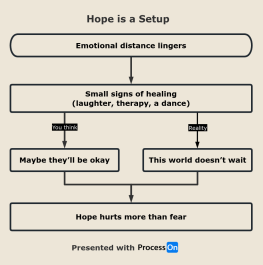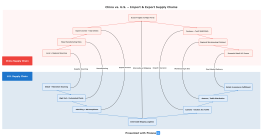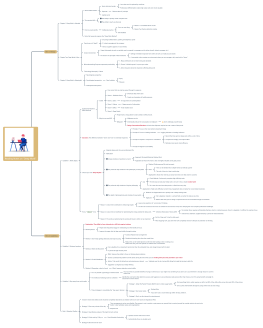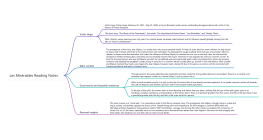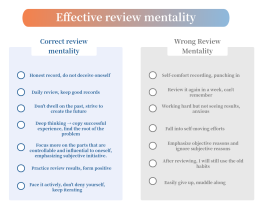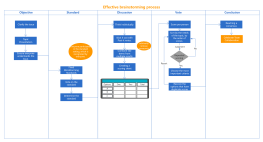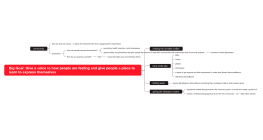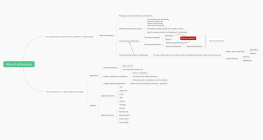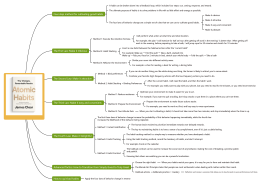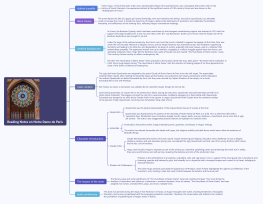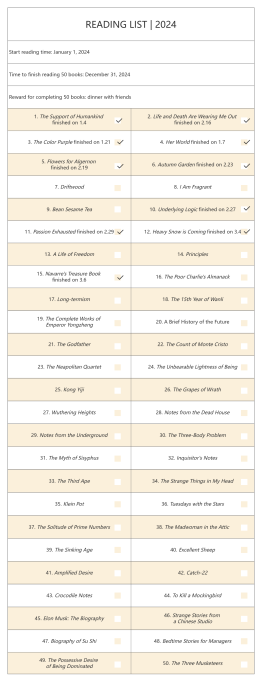Reading Notes - The Seven Habits of Highly Effective People
2024-12-02 11:01:20 123 0 Report 0
0
Login to view full content
Other creations by the author
Outline/Content
Rediscover Yourself
Learn to shift your thinking and break the mold of fixed thinking patterns.
Centered on principles
New levels of thinking
The process of changing habits is very uncomfortable, after all, what we are used to gives us a sense of security.
Three Stages of Growth
Dependency period
With "you" as the core: You take care of me, you are responsible for my gains and losses
Independence period
With "I" as the core: I can do it, I can take responsibility; I can rely on myself, I have the right to choose
Period of Interdependence
"We" at the core: We can do it, we can cooperate; We can integrate each other's wisdom and abilities, and create a better future together.
Three types of assets: Balancing output and capacity (The Goose That Laid the Golden Eggs)
Financial assets
Tangible assets
Human Assets
The Three Stages of Growth and Seven Habits
The essence of interpersonal relationships
Seven Main Investment Methods
Understand others
Pay attention to details.
Keep one's promise
Clarify expectations
Integrity and honesty
Be brave to apologize
Unconditional love
The reverse side of a problem is an opportunity.
Be good at facing problems, view problems as opportunities to improve productivity, and never avoid them.
Investment in Emotional Bank Account
The savings in the emotional account are the indispensable trust in interpersonal relationships, which is the sense of security when people get along with each other.
Proactive - Principle of Personal Vision
Three-step proactive approach
Language
Positive language, gentle, firm, understanding, empathy
attitude
Be proactive, think of ways to solve problems, instead of shirking responsibility, resisting, or being stubborn.
behavior
Take action immediately, no procrastination.
Don't blame others for your actions.
Turn passive into active: reduce negative language to ensure a positive attitude
Listen to your own language
Eliminate negative factors
Circle of Influence and Circle of Concern: Start with What You Can Control
First, make a promise and keep it.
Second, set goals and put them into practice.
About Control
Directly controllable issues: Cultivating the right habits (the first three habits)
Indirectly controllable issues: empathy, setting an example (the last three habits)
Uncontrollable issues: remain calm and accept them peacefully.
Begin with the End in Mind - The Principle of Self-Leadership
Use life goals as the standard for everything: the evaluation you hope to receive at the end of your life is the true success you desire in your heart
Know the direction before doing anything
Anything requires two creations.
Conceiving in the mind: the first intellectual creation
Leader: Do the right thing.
Putting it into practice: the second physical creation
Management: Doing the right thing
Make the right principles the center of your life.
Taking a comprehensive view: self, work, family...
Make full use of your entire brain and develop your right brain.
Broaden your mind
Imagine and think deeply, imagine every detail and put your emotions into it.
Mental rehearsal and affirmation
Confirmation should include five elements: individual, positive, decisive, visible, emotional.
Only by participating can we identify with (the formulation of the mission statement)
First Things First - The Principle of Self-Management
Independent will: A prerequisite for effective management
Clarify goals and missions, and say no to other irrelevant things.
Four types of things: the second type of affairs is the core of effective self-management.
Six Standards of Management Methods
Harmony and unity
Individual's ideals and missions, roles and goals, desires and self-control, work priorities and plans
Balance function
Health, family, personal development, etc.
Centered
Focus on important but not urgent tasks, determine the priority.
People-oriented
The focus of personal management lies in people.
Be flexible
Don't be rigid and inflexible.
portable
The management tool is portable and can be referred to for corrections.
Four Steps of Personal Management
Confirm the role
Determine your key role
Select the target
Confirm the one or two things you most want to do under your assigned role (must include second-tier affairs)
Arrange the schedule
Schedule specific real-time (weekly plan)
Daily adjustment
Adjust according to the actual situation
The secret of high performance: delegation
Instruction-based authorization
Provide detailed guidance for every step of the work process.
Responsibility-based delegation
Anticipated outcomes
Focus on the outcome, clarify the understanding of both parties, and finally achieve the desired result.
Guidelines
Confirm the applicable assessment criteria.
Available resources
Human resources, finance, technology or organization
responsibility attribution
Performance Criteria (Specific Time and Performance Report)
Reward and punish clearly
Financial rewards, spiritual rewards, job adjustments, etc.
Win-Win Thinking - The Principle of Interpersonal Leadership
Six Modes of Interpersonal Communication
Mutual benefit (win-win)
Harm others to benefit oneself (win/lose)
Selflessness (win/lose)
Both sides suffer losses (lose/lose)
Win by being self-sufficient.
No transaction
The Five Essentials of Win-Win Thinking
Win-win ethics
Integrity
Mature
Be gentle and strong at the same time, express yourself while considering others, dare to act
Contentment
Believe in abundant resources, everyone has a share
Win-win relationship
Make sincere emotional investments; focus on the circle of influence.
Win-win agreement
Expected result
Determine goals and deadlines
Guidelines
Determine the principles, guidelines, and limits of the objectives.
Available resources
Human resources, financial resources, technical resources, or organizational resources
Task Assessment
The standards and time for performance evaluation (focusing on results)
Reward and punishment system
Clarify the significance of assessment and rewards
Win-win system
The existence of problems all源于the system.
Win-win process
Look at the problem from the other person's perspective.
Identify the main issues and concerns (rather than positions)
Reach a result that everyone can accept
Various possible ways to achieve this result
Seek First to Understand, Then to Be Understood - The Principle of Empathetic Communication
Mental atmosphere
In addition to material needs, humans' greatest survival needs come from psychology.
Empathic Listening
Fully and deeply understand each other emotionally and rationally, observe with your eyes, and feel with your heart.
Four Autobiographical Responses
Value judgment
There are only two options for dealing with other people's opinions: accept or reject them.
get to the bottom of something
Investigate other people's privacy according to your own values.
Always ready to teach others
Offer advice based on personal experience
Self-righteous
Judge others' actions and motives based on their own actions and motives.
Effective Communication
Repeat the statement.
Add explanation (left brain)
渗入个人的感觉(右脑)
Both explanatory and emotional (left and right brain)
Play the role of a confidant at the right time and use expression techniques
Character first (personal credibility; one's emotional account); emotion second (empathy); reason third (expressing oneself reasonably; logical ability)
Synergy-The Principle of Creative Collaboration
Essence
Judge and respect differences, learn from each other's strengths and弥补 each other's weaknesses;发挥整体大于部分之和
The Three Levels of Communication
keep an eye on each other
Mutual respect
Synergistic effect
Seeking a Third Way
Break out of the either-or mentality and turn resistance into motivation.
Continuous Updating - The Principle of Balanced Self-Improvement
Four Dimensions of Self-Improvement and Perfection
Physical level
endurance
Toughness
Strength
Spiritual level
It is the essence, core and persistence of the value system.
Grasp the direction of life with your heart and feel the essence of life
Intellectual level
Regularly read excellent literary works
Develop the habit of writing and recording.
Learn to organize and plan
Social/emotional aspect
Stick to principles, affirm oneself, be kind to others, and be willing to contribute.
Self-improvement and perfection, to be able to change others
Spiral ascent
Learning-Persistence-Practice
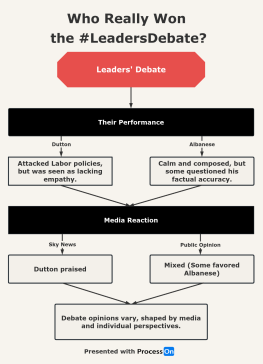
Collect
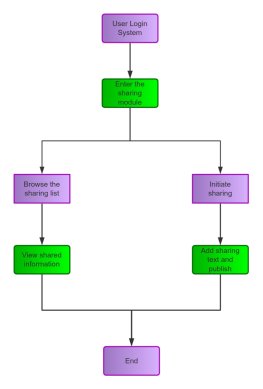
Collect
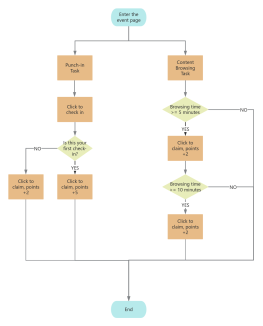
Collect
0 Comments
Next page
Recommended for you
More

